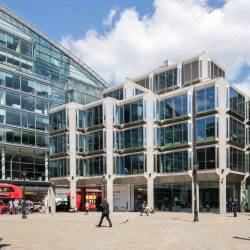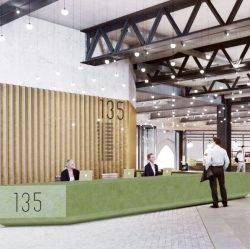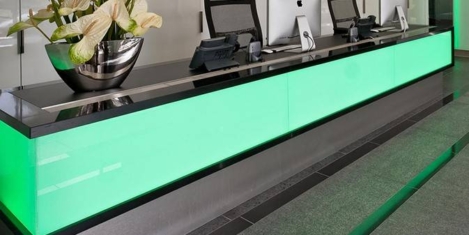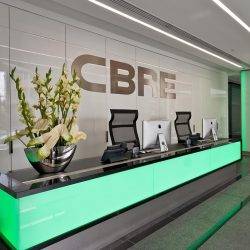February 12, 2019
UK workers demand better remote working options, claims Airbnb report
 UK employers need to provide more flexible and remote working options in order to attract the best talent, according to new research released by Airbnb for Work. Airbnb’s Future of Work report, the first of its kind from the platform, has revealed that the modern trend of remote and flexible working shows no sign of slowing down, and companies embracing this change stand to make the best hires. Workers in the UK are demanding more flexibility than ever, with 77 percent of respondents – and 84 percent of Millennials – agreeing that companies need to provide more remote options to attract talent.
UK employers need to provide more flexible and remote working options in order to attract the best talent, according to new research released by Airbnb for Work. Airbnb’s Future of Work report, the first of its kind from the platform, has revealed that the modern trend of remote and flexible working shows no sign of slowing down, and companies embracing this change stand to make the best hires. Workers in the UK are demanding more flexibility than ever, with 77 percent of respondents – and 84 percent of Millennials – agreeing that companies need to provide more remote options to attract talent.












 Flexible workers claim to work more effectively than those working a traditional ‘nine-to-five’, with a quarter of respondents (27 percent) in a recent poll saying they work longer hours in their new flexible working routine than they did when they worked normal office hours. The research, which was commissioned by the AAT (Association of Accounting Technicians) found that flexible workers think they put in almost seven hours more each week on average than they did previously. The research, which looked at the productivity of a group of workers who set their own hours or working location against a group of those who are not doing so, found that the former benefit from feeling happier and less stressed.
Flexible workers claim to work more effectively than those working a traditional ‘nine-to-five’, with a quarter of respondents (27 percent) in a recent poll saying they work longer hours in their new flexible working routine than they did when they worked normal office hours. The research, which was commissioned by the AAT (Association of Accounting Technicians) found that flexible workers think they put in almost seven hours more each week on average than they did previously. The research, which looked at the productivity of a group of workers who set their own hours or working location against a group of those who are not doing so, found that the former benefit from feeling happier and less stressed. 
 Take-up of office space in Central London has shown a year-on-year increase of 30 percent, reaching 1.3m sq ft in October, according to CBRE. Take-up was strong from creative firms, representing 18 percent of all deals, including the largest deal of the month which saw McCann Erickson take 146,400 sq ft at 135 Bishopsgate EC2. Flexible office operators took 122,300 sq ft of space during the month, bringing the proportion of take-up represented by the flexible office sector in the last 12 months to 19 percent. The largest flex acquisition in October saw Landmark Spaces acquire 37,800 sq ft at Portman House in the West End.
Take-up of office space in Central London has shown a year-on-year increase of 30 percent, reaching 1.3m sq ft in October, according to CBRE. Take-up was strong from creative firms, representing 18 percent of all deals, including the largest deal of the month which saw McCann Erickson take 146,400 sq ft at 135 Bishopsgate EC2. Flexible office operators took 122,300 sq ft of space during the month, bringing the proportion of take-up represented by the flexible office sector in the last 12 months to 19 percent. The largest flex acquisition in October saw Landmark Spaces acquire 37,800 sq ft at Portman House in the West End. 




 Over half of home workers say they appreciate the benefits that home working offers but nearly a quarter complain of loneliness too, a new survey from BHSF claims. When asked how working from home makes them feel, the top three responses were: free (50 percent), in control (47 percent) and calm (46 percent). However, a significant number of those surveyed chose more negative words to describe their feelings. Just over a quarter (26 percent) said that working from home made them feel remote, 24 percent felt isolated and 21 percent lonely.
Over half of home workers say they appreciate the benefits that home working offers but nearly a quarter complain of loneliness too, a new survey from BHSF claims. When asked how working from home makes them feel, the top three responses were: free (50 percent), in control (47 percent) and calm (46 percent). However, a significant number of those surveyed chose more negative words to describe their feelings. Just over a quarter (26 percent) said that working from home made them feel remote, 24 percent felt isolated and 21 percent lonely. 


 The rise of data and digitisation has led to the demise of the traditional working day for many CEOs, with a third now checking business analytics first thing in the morning and last thing before they go to bed. This peaks at 54 percent among 25-34 year olds but drops to just 5 percent for leaders over 45, who are much more fixed to their desk. According to the research by Domo (registration required), 80 percent of these leaders prefer to wait until they are in the office to check in. Three quarters (71 percent) of CEOs across the UK and Ireland believe their business could be at risk from current blind spots in data access and skills, however, there is another demographic split. 84 percent of CEOs age 25-34 said it could be a risk, compared to just half of over 55s.
The rise of data and digitisation has led to the demise of the traditional working day for many CEOs, with a third now checking business analytics first thing in the morning and last thing before they go to bed. This peaks at 54 percent among 25-34 year olds but drops to just 5 percent for leaders over 45, who are much more fixed to their desk. According to the research by Domo (registration required), 80 percent of these leaders prefer to wait until they are in the office to check in. Three quarters (71 percent) of CEOs across the UK and Ireland believe their business could be at risk from current blind spots in data access and skills, however, there is another demographic split. 84 percent of CEOs age 25-34 said it could be a risk, compared to just half of over 55s.









November 23, 2018
Communities are the key factor to rapid growth of coworking
by Petr Boruta • Comment, Coworking, Property, Workplace design
More →